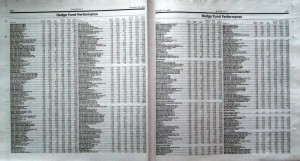Yesterday, Joe Biden was holding forth on how the Obama administration will ensure that earmarks are kept out of the various economic-stimulus bills that the administration will be introducing.
It’s actually possible that he means what he says, as far as the traditional kind of earmark goes–that is, a provision for specific spending, in a specific geographical area, at the behest of a particular Congressman.
But in a broader sense, much of the economic policy of the incoming Obama administration seems to be centered around earmarks, albeit earmarks of a different kind. Instead of Congressional-district-based earmarks, we will have SIC-code-based earmarks (SIC code=standard industrial classification), providing benefits to particular industries, and reverse-bill-of-attainder earmarks, directed in favor of particular named companies or small groups of companies.
Traditional earmarks tended to politicize certain kinds of businesses, such as local construction companies. The new-age earmarks will tend to politicize all types of business, throughout the entire national economy. Your business success if you are an executive or business owner–your employment if you are a worker–your returns on investment if you are a shareholder or bondholder–will increasingly depend on the political rather than the business astuteness of company management.
